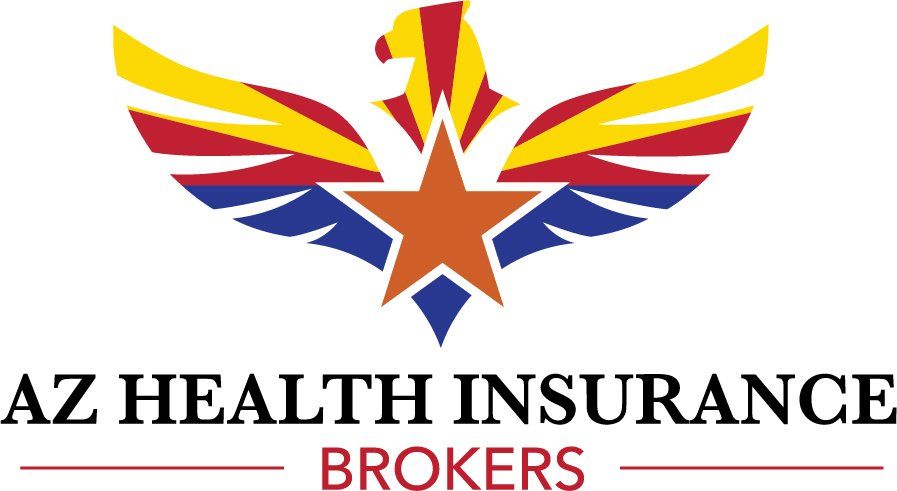What Is a QSEHRA? How Does a QSEHRA Work? A QSEHRA Guide for Small Business Owners
Did you know?
There are many ways to
offer healthcare coverage to employees, and they’re not limited to traditional
group health insurance. For small business owners who want other options, a qualified small employer health reimbursement arrangement (QSEHRA) is an alternative worth considering.

Key Takeaways
- 2024 QSEHRA Contribution Limits: $6,150 individual / $12,450 family.
- A QSEHRA can be a worthwhile alternative for small business owners who want to provide healthcare coverage that’s not traditional group health insurance.
- QSEHRAs provide flexibility, in that employers can determine the exact amount of financial support they’d like to provide employees.
- QSEHRAs can provide coverage for diverse medical costs, including out-of-pocket healthcare costs, prescription drugs and health, dental and vision insurance premiums.
Is a QSEHRA a good fit for your company’s needs? How do you set up a QSEHRA? What are the QSEHRA limits and rules?
This guide walks you through the most commonly asked questions about QSEHRAs.
What Is QSEHRA?
QSEHRA was signed into law in December 2016, as part of the 21st Century Cures Act. It’s considered a type of health reimbursement arrangement (HRA), which is a broad term that refers to an employer-funded plan that reimburses workers for costs related to qualified medical expenses. The Internal Revenue Service (IRS) outlines the rules for a QSEHRA here.
A QSEHRA isn’t a traditional group health insurance plan. Rather, a QSEHRA allows small employers to offer their workers untaxed reimbursement of specific healthcare costs, including health insurance premiums and coinsurance, provided workers maintain minimum essential coverage.
“Minimum essential coverage” is health insurance that satisfies the Affordable Care Act’s (ACA) list of services that must be covered. Plans that qualify as minimum essential coverage include individual health insurance plans (including plans purchased on the ACA marketplace), Medicare and most Medicaid plans, among others.
What QSEHRA Qualifications Must a Business Meet?
Non-profits, for-profits and start-ups are all eligible to participate in a QSEHRA for healthcare coverage at work, provided they meet certain requirements. To qualify for a QSEHRA, a small business or non-profit employer must:
- Have fewer than 50 full-time employees
- Not offer group health insurance to their employees
- Provide the QSEHRA using the same terms to all full-time employees
Note: An employer does not have to offer a QSEHRA to the following employees, but they may if they want to:
- Part-time and seasonal employees
- Employees who have been with the company for less than 90 days
- Employees who are younger than the age of 25
How Does a QSEHRA Work?
Employees don’t contribute to a QSEHRA. Only employers contribute to them. Contributions are tax-deductible to the employer, who then uses the money in the fund to pay back employees for certain healthcare expenses.
Essentially, it works like this:
- Employers set a monthly allowance, which employees may put toward qualified healthcare expenses. There are contribution limits, which are covered below.
- Employees make healthcare purchases based on their needs.
- The employer reimburses them up to their allowance amount.
What Are the QSEHRA Limits for 2024?
For 2024 QSEHRA limits, small business employers may offer up to $6,150 per self-only coverage employee and up to $12,450 per employee with family coverage. Provided workers maintain the minimum essential health insurance coverage, employer coverage payments are tax-free.
What Are the QSEHRA Rules of Notification?
If you decide that offering a QSEHRA is a good fit for your company, employers must follow certain QSEHRA rules of notification, as set forth by the IRS. Employers must notify their employees:
- That a QSEHRA benefit will be available at least 90 days in advance of the start of a new year, or at the beginning of a new employee’s eligibility
- The amount of the annual benefit
- That employees need to report their QSEHRA benefit to the marketplace where they apply for premium tax credits
- That the employee will have to pay taxes on the benefit for any month in which they did not maintain health coverage
What Expenses Can a QSEHRA Cover?
IRS Publication 502 defines what medical expenses are eligible for reimbursement from a QSEHRA. The list is long, but a sample of eligible expenses includes:
- Health, dental and vision insurance premiums
- Out-of-pocket healthcare costs
- Prescription drugs
- Over-the-counter medication
- Co-pays and deductibles
- Chiropractic care
Note: Employers can limit the list of eligible expenses, if they wish.
What’s the Difference Between an HRA and a QSEHRA?
A QSEHRA is a type of HRA. There are many different types of HRAs, including an individual coverage health reimbursement arrangement, or ICHRA, and they all have various distinctions and eligibility requirements. These differences lie in:
- The type of business that can offer the types of HRAs
- Which employees can participate in the HRA
- How the HRA’s benefit affects the employees’ premium tax credits
- Whether the employer may offer the HRA along with group health insurance
- The limit on how much untaxed money an employer can offer employees
Are QSEHRA Reimbursements Taxable?
Reimbursements to employees from a QSEHRA are not taxed, with one important qualification: the employee must maintain minimum essential health insurance coverage. Employees will have to pay taxes on their benefit for any month in which they do not maintain minimum essential health insurance coverage.
What Are the Benefits of a QSEHRA?
Your small business might be a good fit for offering a QSEHRA for the following reasons.
- A QSEHRA enables small employers to offer healthcare benefits when they may not otherwise be able to. This is important for employee attraction and retention, as the U.S. Chamber of Commerce reports health coverage is the top benefit employees want from a job.
- Employers can set the allowance caps in their QSEHRA, which gives them control over their expenses. There are no surprises or hidden costs.
- There are no minimum participation requirements. If you have one eligible employee, you can offer a QSEHRA.
- There are no geographical restrictions within the U.S. Remote employees and/or employees in other states can participate, as well.
Another potential advantage is that an employee can use their allowance for premium and non-premium expenses. This is not allowed under a group health insurance plan.
How Do I Set Up a QSEHRA?
The general process to set up a QSEHRA entails the following steps.
- Decide if you will self-administer the plan or if you will use a third party. At AZ Health Insurance Brokers, we have the knowledge and experience to help you devise a solution that fits your needs and budget.
- Choose a start date. If you offer a group health insurance policy, you must cancel it before the QSEHRA can take effect.
- Decide who among your employees will be eligible to participate. Remember, while you must offer the benefit to full-time employees, you may include part-timers, as well.
- Set your allowances. You may offer up to $6,150 per self-only coverage employee and up to $12,450 per employee with family coverage.
- Get all your plan documents and compliance policies in order.
- Notify employees about the QSEHRA (see the notification requirements above).
- Meet all deadlines.
- Stay compliant. If you fail to do so, the IRS could determine your QSEHRA to be invalid, and you (and potentially your employees) could get taxed on all of your reimbursements. Check out IRS Notice 2017-67 for more on this.
Want to Set Up a QSEHRA for Your Business? Contact AZ Health Insurance Brokers
Setting up a QSEHRA can be tricky on your own. We at AZ Health Insurance Brokers are experienced health insurance professionals. We can help you better understand QSEHRAs, answer additional questions you may have and help you determine if a QSEHRA is the best fit for your small business.
Contact us online today to set up a no-cost, no-obligation meeting to discuss your needs. Or, call us at 602.617.4107, or email quotes@azhealthinsurancebrokers.com.
What is a QSEHRA?
A qualified small employer health reimbursement arrangement (QSEHRA) is a health benefit for small businesses that allows employers to pay back employees tax-free for medical expenses, including health insurance premiums.
Who qualifies for a QSEHRA?
QSEHRAs are designed for small employers with fewer than 50 full-time equivalent employees, who do not offer a group health insurance plan.
What expenses can be reimbursed through a QSEHRA?
QSEHRAs can reimburse a range of medical expenses, as defined under IRS Section 213(d), such as health insurance premiums, deductibles, co-payments and other medical expenses.
How much can an employer contribute to a QSEHRA?
For 2024, an employer can contribute up to $6,150 for individual employees and $12,450 for families.
Do employees need to have health insurance to participate in a QSEHRA?
Yes. To receive reimbursements through a QSEHRA, employees must have minimum essential coverage as defined by the ACA.
How does a QSEHRA benefit employers?
QSEHRAs provide small employers with a flexible and budget-friendly way to offer health benefits by reimbursing employees for their health costs. Contributions are deductible as a business expense, which helps to reduce the overall tax burden for the business.
How do employees access their QSEHRA benefits?
Employees must provide proof of their medical insurance, and the employer reimburses them up to the set allowance. This process can be facilitated by third-party administrators who specialize in managing QSEHRAs.
What are the reporting requirements for a QSEHRA?
Employers need to report the benefit through employees’ W-2 forms, showing the total amount made available in the QSEHRA for the year.











